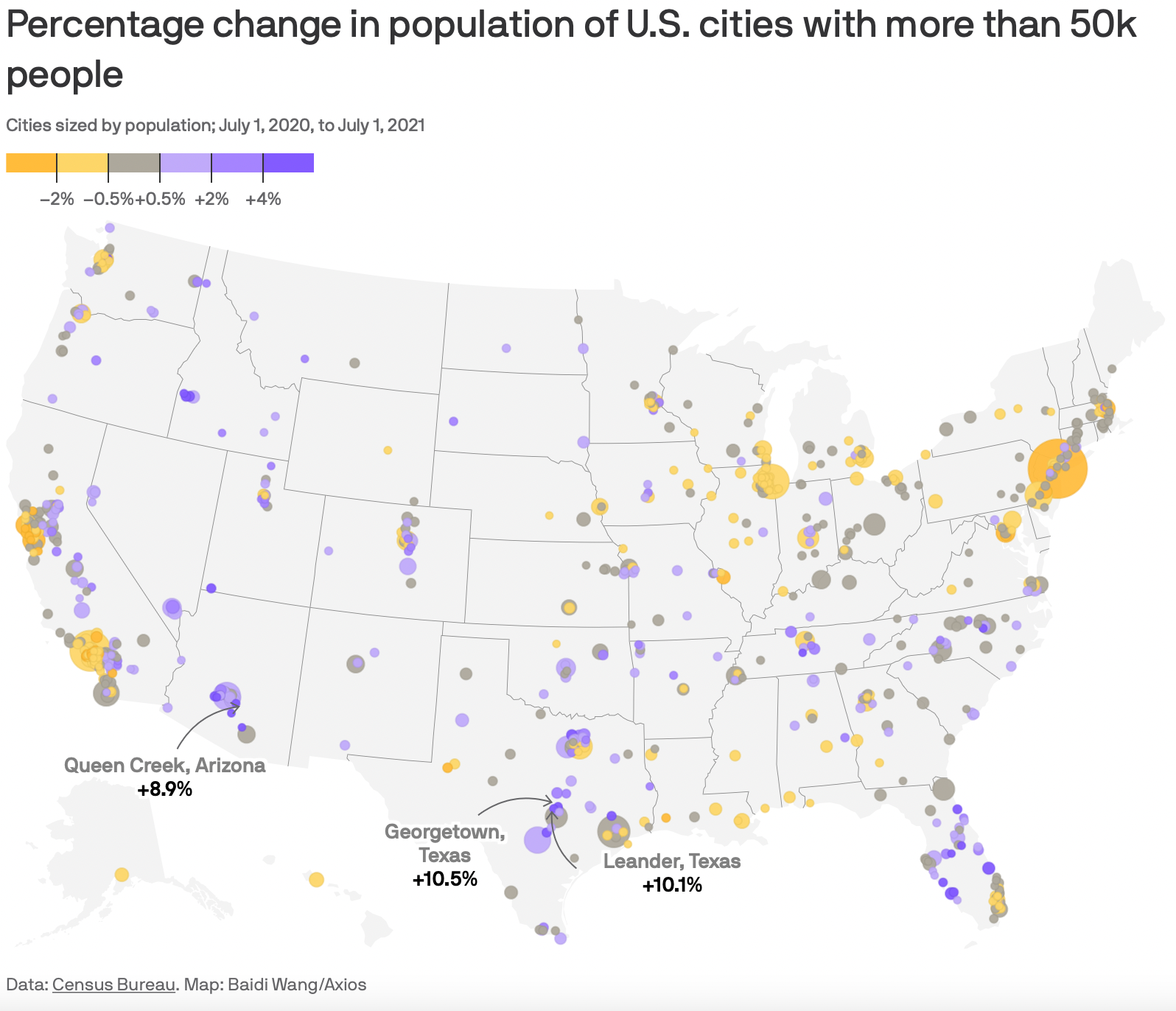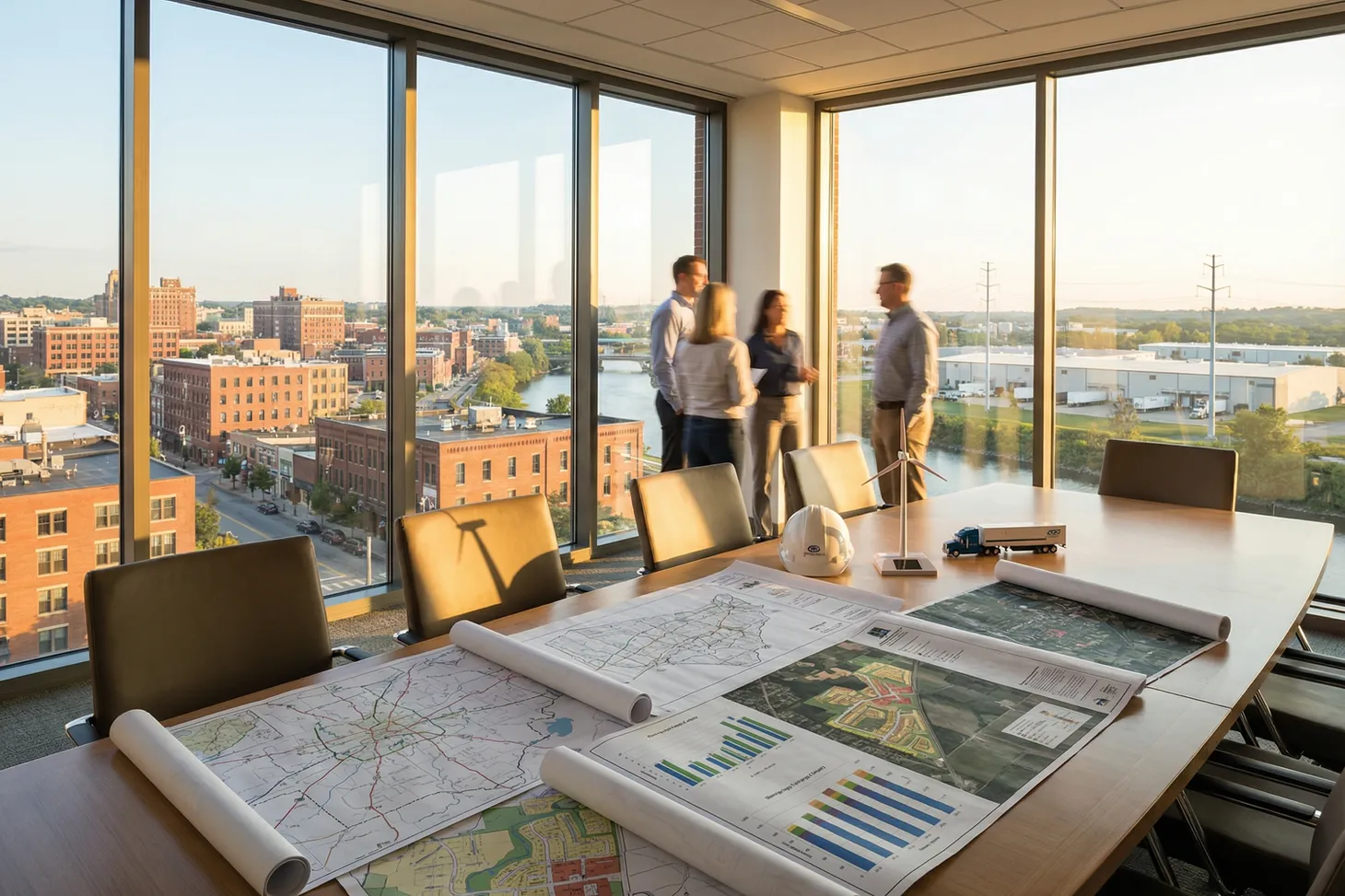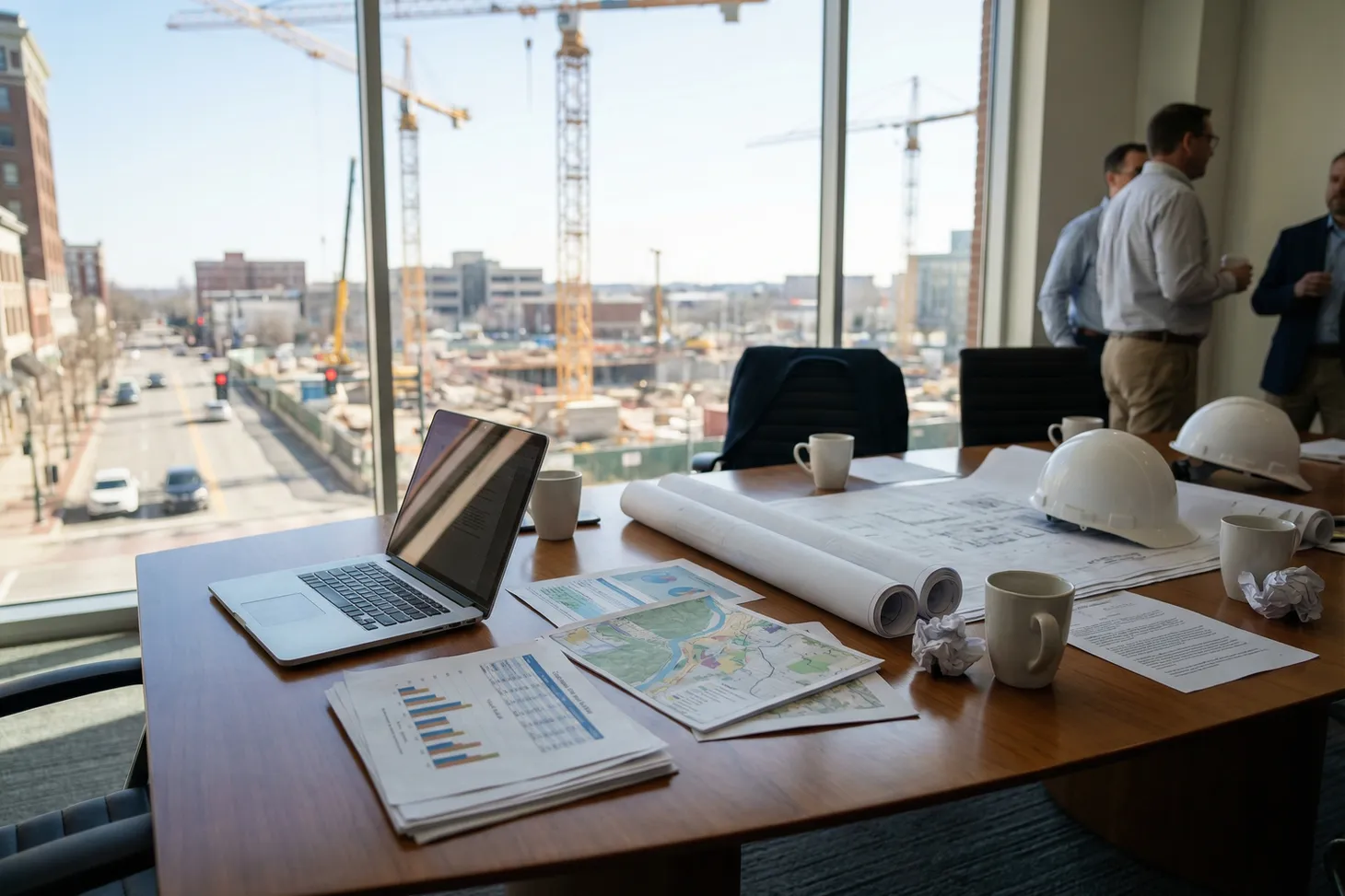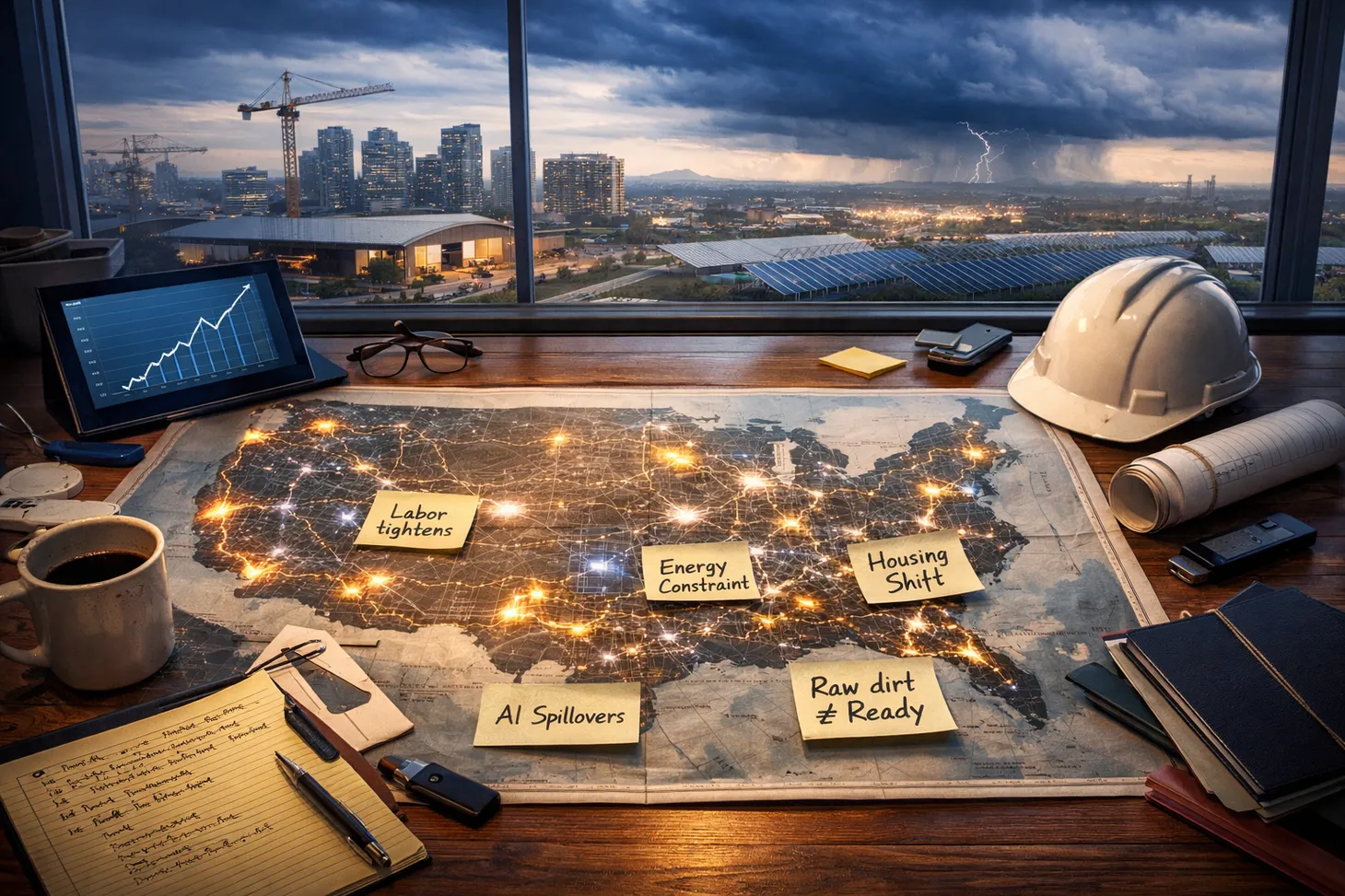Assorted Links Monday
Back to work, and back to today's assorted links.

Table of Contents
Economic development and real estate development: The interests of economic development and real estate development are inherently intertwined.
Antitrust-buster bombs away: FTC Chair Lina Khan and Antitrust Division chief Jonathan Kanter have set in motion a revolution in antitrust. The explosions are about to start with attacks on mergers and the insulin supply chain.
Solve life backwards: It’s much easier to solve life’s most difficult problems by working from your end goal backwards instead of from your present state forwards.
Where America's cities are growing: Percentage change in population of U.S. cities with more than 50k people

Build a thing too fast, and mistakes cascade.
— Stewart Brand (@stewartbrand) June 2, 2022
Build a thing at the right pace, and mistakes instruct.
Build a thing too slow, and mistakes are forgotten, then endlessly repeated in the endless restarts.
For instance, with infrastructure: https://t.co/cxVP2YoHve
Small retail can make neighborhoods walkable: Allowing accessory commercial units to operate in neighborhoods can spur walkability and small-business formation.
1/ Infrastructure is vital, but it’s too damn expensive, there is too much red tape and there are too many chances for people to say “no” to housing, transit, commerce, and greenspace.
— Suraj Patel (@surajpatelnyc) June 1, 2022
🧵
Are we rerunning the 1970s? pic.twitter.com/4pOJMJyIPm
— 📈 Len Kiefer 📊 (@lenkiefer) May 27, 2022
New independent study course from FEMA: Critical Concepts of Supply Chain Flow and Resilience
This four-hour Independent Study course covers the lessons learned from the 2017 hurricane season, with the effort of improving post-disaster supply chain management to strengthen understanding of local supply chain dynamics; improve information-sharing and coordination among public and private stakeholders; and provide State, Local, Tribal and Territorial Emergency Managers with the knowledge of potential and experienced post-disaster supply chain disruptions, management efforts, and best practices.
Why are nuclear power construction costs so high? Labor and regulations, mostly.
“Slavery Was Never an American Economic Engine”: On the contrary, emancipation delivered the largest single productivity gain in U.S. history. Fascinating article by Ohio State University economist Trevon Logan.
Are workers more productive at home? A conversation with Stanford economist Nick Bloom on a surprising find from the pandemic: remote work is fueling economic growth.
Econ Dev Show Newsletter
Join the newsletter to receive the latest updates in your inbox.


